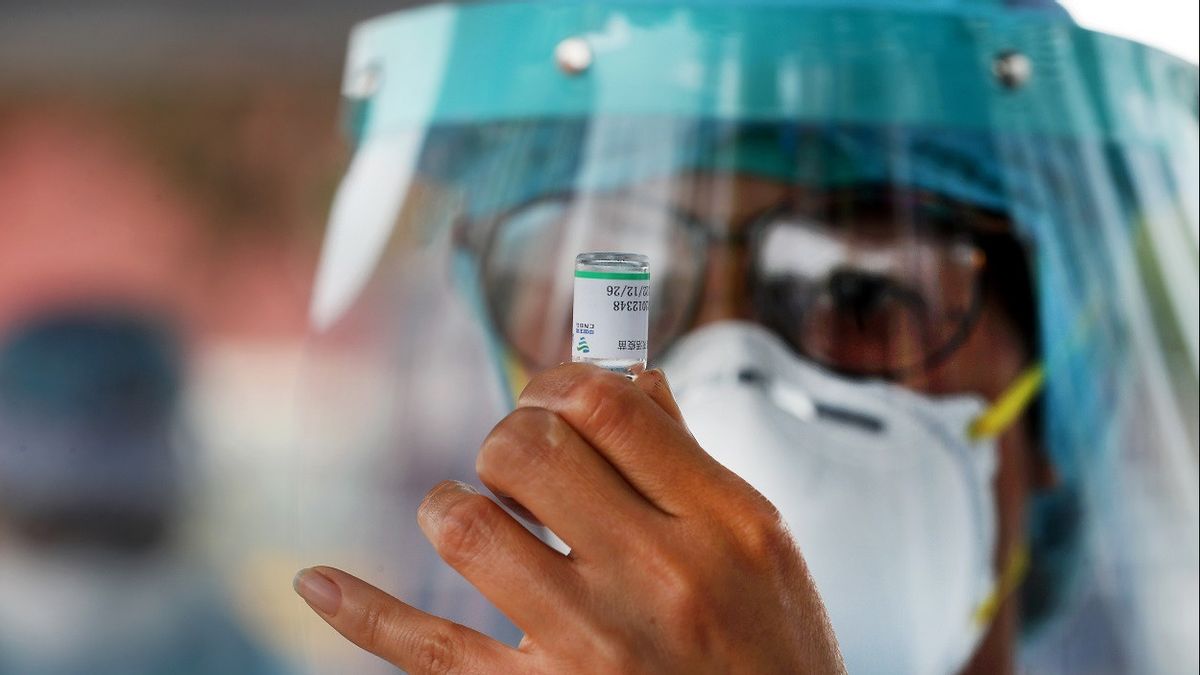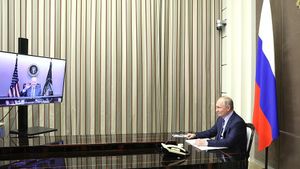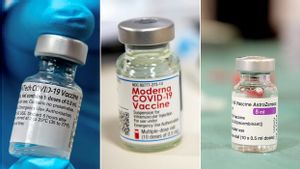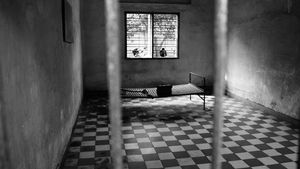JAKARTA - About a million doses of a COVID-19 vaccine were estimated to have expired in Nigeria without being used last month, two sources told Reuters, one of the biggest dose losses showing African countries' difficulty getting injections in the arm.
Governments on a continent of more than a billion people have been pushing for more vaccine shipments, as inoculation rates in the region lag far behind those of wealthier regions, increasing the risk of new variants such as the Omicron coronavirus now spreading throughout South Africa.
For example Nigeria, Africa's most populous country and home to more than 200 million people, of which less than 4 percent of adults have been fully vaccinated against COVID-19, according to the World Health Organization (WHO).
However, the recent surge in supply has caused new problems, many African countries finding they lack the capacity to administer vaccines, some of which have short shelf lives.
The expired vaccine was alerted by AstraZeneca and shipped from Europe, a source with direct knowledge of vaccine delivery and use told Reuters. They are supplied through COVAX, a dose-sharing facility led by the GAVI and WHO vaccine alliance.
A third source familiar with the shipment said some doses arrived within four to six weeks of expiration and could not be used on time, despite efforts by health authorities.
The count of expired doses is still ongoing and the official number has not been determined, the source said.
"Nigeria is doing all it can. But they are struggling with a short-lived vaccine," one of them told Reuters, as quoted on December 8, adding "Now (supply) is unpredictable and they are shipping too much."
Meanwhile, a spokesman for the National Primary Health Care Development Agency, the agency responsible for vaccinations in Nigeria, said the number of vaccines received and used was still being counted, with the findings to be announced in the coming days.
The WHO said the dose had expired, but declined to provide a figure. It said an additional 800,000 doses were at risk of expiry in October, all taken in a timely manner.
"The uptake of vaccines is expected in any immunization program, and in the context of the spread of COVID-19 is a global phenomenon," the WHO said in a statement responding to a Reuters question.
It said vaccines shipped with 'very short' shelf lives were a problem. Nigeria's vaccine loss appears to be one of the largest of its kind over a short period of time, even more than the total number of vaccines that several other countries in the region have received.
However, Nigeria is not alone when it comes to expired vaccines. Across Europe, countries including Germany and Switzerland have struggled to maximize dosage use.
In January, officials in the UK estimated waste of around 10 percent of the vaccine. In April, the French Minister of Health told local media that 25 percent of AstraZeneca, 20 percent of Moderna, and 7 percent of Pfizer's vaccines were wasted at that time.
Africa's high vaccination rates are critical to ending the global COVID-19 pandemic, health experts say. This is because only 102 million people, or 7.5 percent of Africa's population, are fully vaccinated, according to WHO.
Shortages of staff, equipment, and funds have hampered the launch. The anticipated surge in supply, comprising millions of doses in the coming weeks, could expose the weakness further, experts warn.
Not only that, but Nigeria's health system is also underfunded by a shortage of daily supplies. A poor power supply means the refrigerators that store vaccines have to be stored in generators with the expensive fuel. Millions of citizens live in areas plagued by bandits or Islamic insurgencies that are inaccessible to medics.
"The foundation is not strong. And if you don't have a solid foundation, there's not much you can build on it," Health Minister Osagie Ehanire said at a public forum last week.
In addition, the shelf life of donated vaccines does not help African countries. South Sudan and the Democratic Republic of the Congo, both in desperate need of doses, had to send back some because they couldn't distribute them in time.
Meanwhile, Namibia warned last month, they may have to destroy thousands of expired doses. The situation is only increasing vaccine inequality, experts warn.
SEE ALSO:
"Over 8 billion doses have now been administered, the largest vaccination campaign in history," WHO Director-General Tedros Adhanom Ghebreyesus said on Twitter on Monday, marking a year ago this week since the COVID vaccine was first administered.
"But we all know that this extraordinary achievement has been marred by terrible injustices."
The English, Chinese, Japanese, Arabic, and French versions are automatically generated by the AI. So there may still be inaccuracies in translating, please always see Indonesian as our main language. (system supported by DigitalSiber.id)













